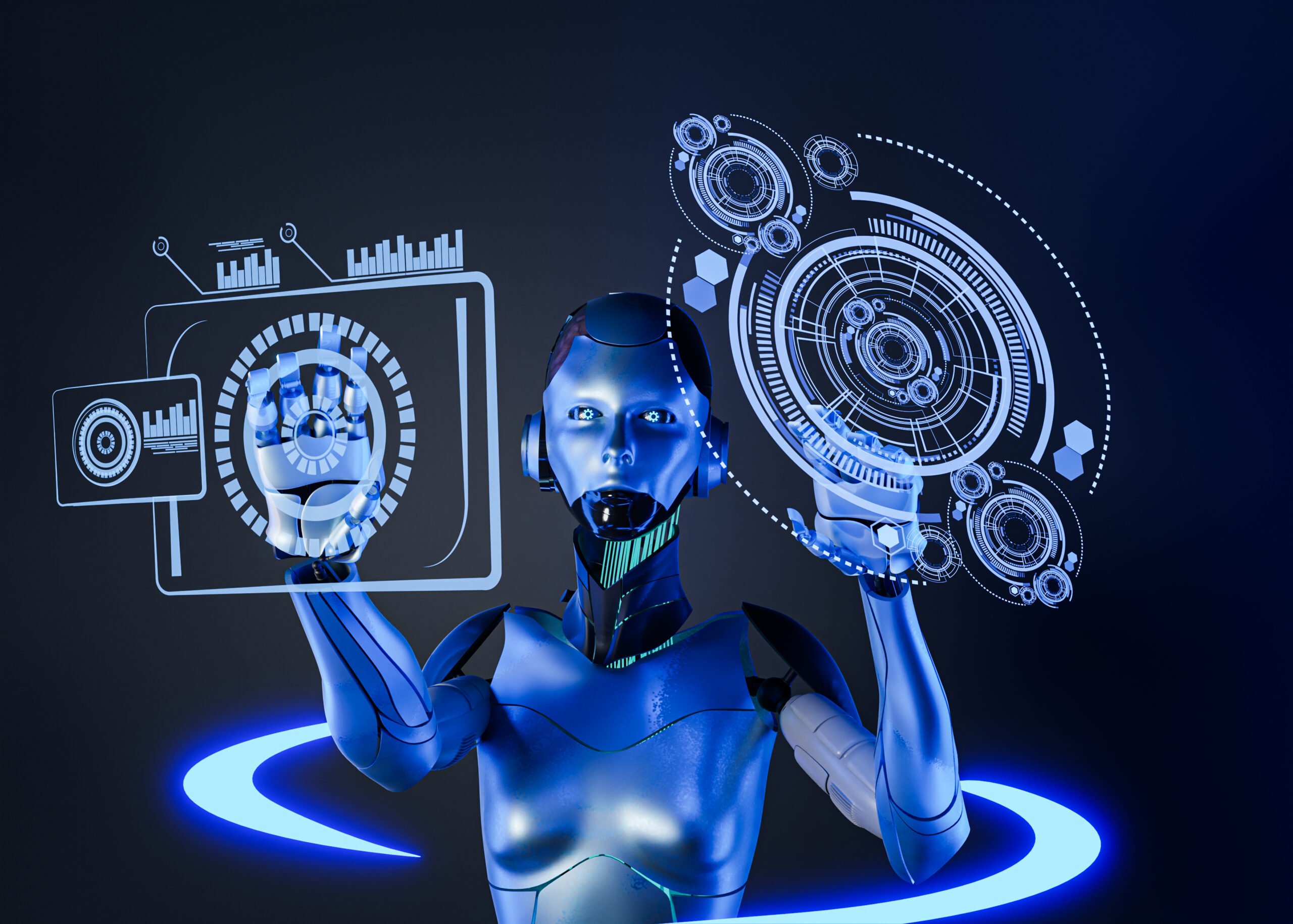The role of AI in 2027 is expected to be expansive and deeply integrated into various aspects of society, technology, and business. Here are some key areas where AI will likely play a significant role:
- Healthcare
- Diagnostics and Treatment: AI systems will be more advanced in diagnosing diseases and recommending treatments, personalized to individual patients’ genetic profiles and medical histories.
- Medical Research: AI will accelerate drug discovery and development, analyzing vast datasets to identify potential new treatments more quickly.
- Autonomous Systems
- Transportation: Autonomous vehicles, including cars, trucks, and drones, will be more prevalent, improving safety, reducing traffic congestion, and enhancing logistics and delivery systems.
- Robotics: AI-powered robots will be used in various sectors, including manufacturing, agriculture, and domestic services, performing tasks with greater efficiency and precision.
- Finance
- Algorithmic Trading: AI will dominate trading floors, making split-second decisions based on market data and trends.
- Fraud Detection: Advanced AI systems will provide enhanced security measures, identifying and preventing fraudulent activities in real-time.
- Education
- Personalized Learning: AI will enable highly personalized learning experiences, adapting educational content to individual student needs and learning styles.
- Administrative Efficiency: AI will streamline administrative tasks, from grading to managing student records, allowing educators to focus more on teaching.
- Customer Service
- Chatbots and Virtual Assistants: AI-powered chatbots and virtual assistants will handle a significant portion of customer service inquiries, providing instant responses and improving customer satisfaction.
- Personalization: AI will enhance customer experiences by providing personalized recommendations and solutions based on user behavior and preferences.
- Environmental Sustainability
- Resource Management: AI will optimize the use of resources, such as energy and water, contributing to more sustainable practices in industries and agriculture.
- Climate Change Mitigation: AI will aid in climate modeling, predicting environmental changes, and proposing effective mitigation strategies.
- Smart Cities
- Infrastructure Management: AI will help manage urban infrastructure, including traffic control, waste management, and energy distribution, making cities more efficient and livable.
- Public Safety: AI will enhance public safety through predictive policing and advanced surveillance systems.
- Employment and Workforce
- Job Transformation: AI will transform many job roles, automating repetitive tasks and augmenting human capabilities in complex decision-making and creative endeavors.
- New Job Creation: The rise of AI will create new job categories in AI development, maintenance, and oversight, as well as in fields leveraging AI innovations.
- Ethics and Regulation
- Ethical AI: There will be a growing focus on ensuring AI systems are ethical, fair, and transparent, with regulations in place to protect privacy and prevent biases.
- AI Governance: Governments and international bodies will develop and enforce regulations governing AI use, balancing innovation with societal impact.
- Entertainment and Media
- Content Creation: AI will generate content for films, music, and games, enabling new forms of interactive and personalized entertainment.
- Media Analysis: AI will analyze and curate vast amounts of media content, helping users discover content tailored to their interests and preferences.
By 2027, AI’s role will be integral to daily life, driving advancements across multiple sectors and significantly influencing how we live and work.
